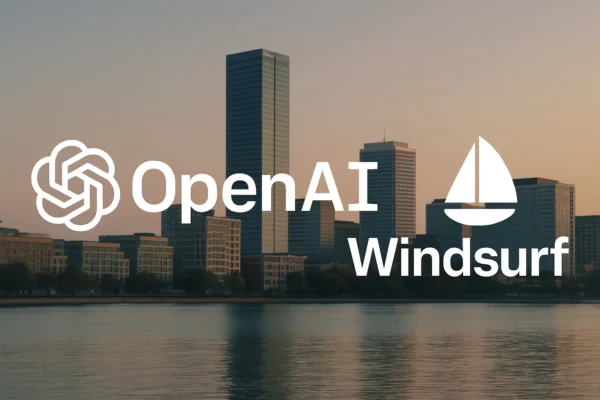
AI isn’t replacing human intelligence—it’s rewiring how we think, learn, and create. Explore how generative AI can enhance cognition and drive a new era of human-machine collaboration.
Lately, headlines have been ringing alarm bells about the “erosion” of human cognition due to overreliance on generative AI tools like ChatGPT, Gemini etc. A recent Guardian article went as far as to link the rising use of such technologies with declining IQ trends, deprived creativity, and poor academic performance in core subjects.
While it’s important to explore the unintended consequences of any transformative tool, it’s equally crucial to challenge narratives built around fear and regression. Because AI is not replacing human intelligence—it’s reshaping the way we engage with information, learn, and solve problems. And that shift isn’t necessarily a decline; it’s an evolution.
The Fallacy of an Inflexible Intellect
The underlying concern in much of this discourse assumes that human cognition is a fixed standard—that there’s one “right” way to be intelligent, and that way is being eroded by machines. But the truth is, intelligence has always been shaped by tools surrounding humans.
From the printing press to the calculator, each leap in technology has sparked panic that human thinking would wither in the shadow of the machine. But history tells a different story. Calculators didn’t destroy our ability to do math—they freed us from repetitive calculations and opened the door to more complex thinking. Similarly, Wikipedia didn’t end knowledge-seeking—it democratized it.
AI is simply the next layer in this evolutionary arc. It doesn’t diminish intelligence; it challenges us to redefine what intelligence can look like in a world where access to information is instantaneous and collaboration with machines is seamless.
From Memory to Meaning
One of the core arguments made by critics is that AI is weakening memory and recall, especially among students. But here’s the thing: memorization has never been the pinnacle of intelligence. In fact, we’ve been slowly shifting away from rote learning for decades.
Today, value lies not in knowing everything—but in knowing how to navigate, synthesize, and critically evaluate information. AI supports that transition beautifully. It’s a dynamic tool that enables students and professionals to spend less time searching and more time thinking—questioning assumptions, exploring alternatives, and generating insight.
Used correctly, AI doesn’t do the thinking for you—it accelerates your ability to think deeper, faster.
Creativity, Reimagined
Another point often raised is that generative AI may “kill creativity.” But that view assumes creativity exists in isolation, uninfluenced by collaboration, prompts, or reference. In reality, creativity has always thrived in response to constraints and stimuli. AI simply introduces a new collaborator in the creative process—one that can bounce back ideas instantly, suggest unexpected pathways, or push boundaries of style and structure.
Artists, writers, and designers using AI are not being replaced—they’re being reframed. AI becomes a mirror, a muse, or even a challenge. It can provoke originality rather than suppress it—if we let it.
The real threat to creativity isn’t AI—it’s passive consumption. And that risk existed long before Gen AI tools. The antidote lies not in banning tools, but in teaching people how to engage with them actively, critically, and creatively.
The Rise of the Augmented Human
While concerns about declining IQ or cognitive dependence dominate the current narrative, there’s another side to the story—one rooted not in fear, but in transformation.
Not everyone will lose cognitive strength in the AI era. In fact, those who embrace AI as a thinking partner, rather than a thinking substitute, may emerge sharper, faster, and more strategically attuned to the complexity of the modern world.
AI won’t lower the ceiling of human intelligence—it will raise the floor for what’s possible. The future belongs to Augmented Humans: individuals who combine critical thinking, emotional intelligence, and machine collaboration in ways we’re just beginning to understand.
This isn’t the end of deep thought—it’s the beginning of a new kind of brilliance.
A New Kind of Intelligence
We’re entering an era where intelligence isn’t about the volume of information stored in the brain—but how we interact with a constantly evolving ecosystem of knowledge. This shift calls for cognitive flexibility, emotional intelligence, interdisciplinary thinking, and ethical reasoning—skills that AI can support but not replicate.
Rather than fearing dependency, we should be asking how to integrate AI to enhance these capabilities. Education, in particular, needs to evolve not by rejecting AI, but by embedding it within learning environments that emphasize analysis, interpretation, and original synthesis.
Imagine a classroom where students use AI to challenge historical narratives, simulate complex economic models, or debate philosophical dilemmas. That’s not cognitive erosion—it’s the expansion of human potential.
Responsibility Over Resistance
To be clear, this doesn’t mean all concerns are baseless. Like any technology, AI has risks—over-reliance, misinformation, bias, and a potential gap between those who wield it effectively and those who don’t. But the solution isn’t resistance—it’s responsible usage.
We need digital literacy programs, transparent AI systems, ethical guidelines, policy revamp and inclusive access. What we don’t need is a moral panic that dismisses the most powerful tool of our generation as inherently harmful.
AI isn’t an autopilot for human thinking—it’s a co-pilot. And just like any good co-pilot, it depends on the skill, intent, and awareness of the one steering the plane.
Let’s not fall into the trap of nostalgia for an outdated model of intelligence. The mind is not a closed system threatened by machines—it’s an open system constantly shaped by its environment. AI doesn’t weaken us unless we let it.
The real question is not “Is AI making us less intelligent?” It’s: Are we ready to evolve with it—or are we clinging to definitions of intelligence that no longer serve us?





